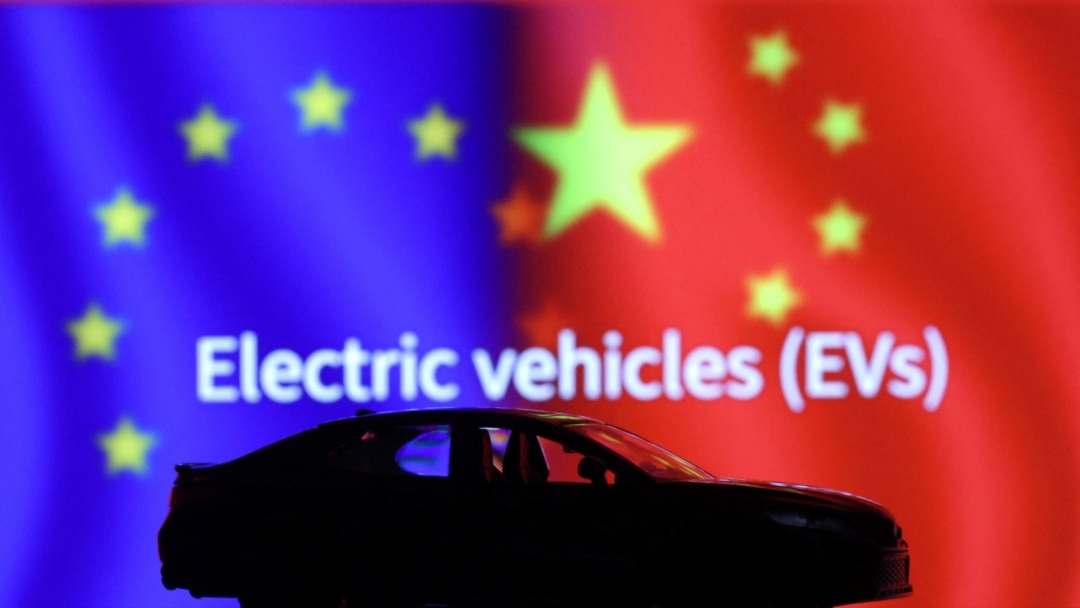
Recently, the European Commission announced that it will impose tariffs on electric vehicles imported from China, which has attracted widespread attention from the international community. According to the announcement, this decision is based on the investigation results of the threat of economic damage to EU pure electric vehicle manufacturers caused by unfair subsidies to the Chinese electric vehicle value chain. What exactly is the intention of the EU's move?
It is understood that since October last year, the European Union has been conducting anti subsidy investigations against Chinese electric vehicles. Recently, the European Commission announced that it will begin levying temporary countervailing duties on electric vehicles imported from China in early July, with tax rates ranging from 17.4% to 38.1%. This decision seems to indicate that the EU believes that Chinese electric vehicle manufacturers benefit from subsidies, thereby weakening the competitiveness of European competitors. In addition to the above-mentioned tariffs, the EU also imposes a 10% ordinary import tax on all imported pure electric vehicles. This means that the cost of Chinese electric vehicles in the EU market will significantly increase, which may have a certain impact on the sales and competitiveness of enterprises.
However, this approach has faced strong opposition from various parties, including the Chinese Ministry of Commerce and the Ministry of Foreign Affairs. They believe that the EU's move not only damages the legitimate rights and interests of China's electric vehicle industry, disrupts mutually beneficial cooperation between China and Europe in new energy vehicles, but also distorts the global automotive industry chain and supply chain, including the EU. At the same time, this move is also considered a typical protectionist action that ignores objective facts and World Trade Organization rules.
Some argue that the EU's move may be due to political manipulation, with strong unilateral protectionism and not based on substantive appeals from the European industry. Many European industry representatives have also expressed concerns about the survey, believing that it will have a negative impact on the innovation, research and development, and market cooperation of Chinese and European companies in the field of electric vehicles.
In fact, the Chinese electric vehicle industry has made significant progress in the past few years, becoming one of the largest new energy vehicle markets in the world. As an important export destination for Chinese electric vehicles, the European Union has always enjoyed the convenience and advantages brought by Chinese electric vehicles. Nowadays, the EU has chosen to restrict the import of Chinese electric vehicles by imposing tariffs, which is undoubtedly a short-sighted behavior.
It is worth noting that despite facing increased tariffs from the European Union, the performance of Chinese electric vehicles in the European market remains strong. Data shows that the number of registered Chinese made electric vehicles in Europe increased by 23% year-on-year from January to April this year, indicating the potential and attractiveness of Chinese electric vehicles in the European market.
In addition, imposing tariffs will also have a negative impact on both China and Europe. On the one hand, Chinese electric vehicle manufacturers will face higher export costs, which will affect their competitiveness in the European market. On the other hand, European consumers will also face pressure from price increases, which may affect the popularization and promotion of electric vehicles.
This approach of the EU obviously runs counter to the principles of market economy and fair competition, as well as international trade rules. For China, there are principles and interests that must be defended.
Overall, the EU's intention to impose tariffs on electric vehicles in China is still unclear, but this move undoubtedly casts a shadow on China Europe economic and trade relations. I hope that the EU can reconsider this decision, strengthen communication, seek mutually beneficial solutions, and jointly promote the healthy development of the global automotive industry.

The South Korean political arena has once again been embroiled in a public controversy over a judicial investigation that has shaken the entire nation.
The South Korean political arena has once again been embroi…
On the morning of December 29th local time, the precious me…
According to the US media Barchart, recently, the fluctuati…
On December 29th, Mar-a-Lago in Florida, USA, witnessed a h…
SoftBank Group announced on Monday that it has agreed to ac…
Recently, the US State Department issued a visa ban, adding…